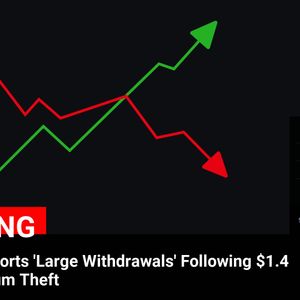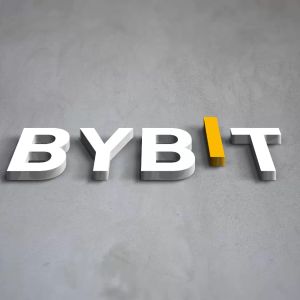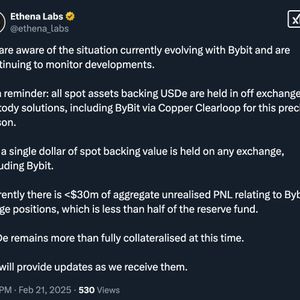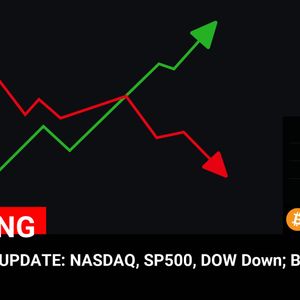In a potentially game-changing development for the world of cryptocurrency, a high-ranking official from a European central bank has publicly advocated for deeper exploration into Bitcoin’s role in national reserves. Aleš Michl, the Governor of the Czech National Bank (ČNB), has called upon his peers in central banking to seriously consider and study Bitcoin. This isn’t just a casual suggestion; it’s a call to action, signaling a possible shift in how traditional financial institutions view the leading cryptocurrency. Let’s dive into why this announcement is significant and what it could mean for the future of Bitcoin and central banking. Why is a Central Bank Governor Talking About Bitcoin as a Reserve Asset? For years, Bitcoin has been primarily discussed as a speculative investment, a digital gold alternative, or a tool for financial innovation. However, the idea of a central bank holding Bitcoin as part of its reserves is a relatively new and somewhat radical concept. Traditionally, central banks hold reserves in assets like gold, foreign currencies (primarily the US dollar and Euro), and government bonds. These are considered safe, liquid, and globally accepted. So, why would a central banker suggest adding Bitcoin to this mix? Michl’s call to action likely stems from a combination of factors, including: Diversification: Central banks are always looking to diversify their reserve holdings to mitigate risk. Over-reliance on a single currency or asset class can be problematic. Bitcoin, being uncorrelated to traditional markets, could offer a unique diversification opportunity. Inflation Hedge: With fiat currencies facing inflationary pressures globally, assets perceived as inflation hedges are gaining traction. Bitcoin, with its capped supply of 21 million coins, is often touted as a potential hedge against inflation, similar to gold. Technological Innovation: Central bankers are increasingly aware of the disruptive potential of blockchain technology and cryptocurrencies. Studying Bitcoin could be seen as a proactive step to understand and potentially leverage this technology. Decentralization and Sovereignty: Unlike traditional reserve assets that are often controlled or influenced by specific nations or institutions, Bitcoin is decentralized. This aspect might appeal to central banks seeking greater financial sovereignty. The Benefits of Central Banks Researching Bitcoin for Reserves Governor Michl’s suggestion isn’t just about jumping on the crypto bandwagon; it’s about prudent financial strategy and future-proofing the Czech Republic’s financial system. What are the potential benefits of Bitcoin research for reserve use by central banks? Enhanced Understanding of Digital Assets: Thorough research will equip central banks with a deeper understanding of cryptocurrencies, blockchain technology, and the broader digital asset ecosystem. This knowledge is crucial in an increasingly digital world. Potential for Higher Returns: Historically, Bitcoin has demonstrated significant price appreciation, although with high volatility. If Bitcoin continues to grow as an asset class, early adoption and reserve allocation could lead to substantial returns compared to traditional low-yield reserve assets. Modernization of Reserve Management: Integrating Bitcoin into reserves could be seen as a forward-thinking move, signaling a central bank’s willingness to embrace innovation and adapt to the evolving financial landscape. Reduced Dependence on Traditional Systems: Bitcoin operates outside traditional financial systems. Holding Bitcoin in reserves could offer a degree of independence from traditional banking networks and geopolitical influences. Challenges and Considerations for Central Banks Adopting Bitcoin While the potential benefits are compelling, adopting Bitcoin as a reserve asset is not without its challenges. Central banks are known for their cautious approach, and for good reason. They manage public funds and are responsible for financial stability. Here are some key challenges and considerations: Volatility: Bitcoin’s price volatility is perhaps the biggest hurdle. Central banks need stable and predictable reserve assets. Significant price swings in Bitcoin could create instability in reserve values. Regulatory Uncertainty: The regulatory landscape for cryptocurrencies is still evolving globally. Central banks need clarity and legal frameworks to hold and manage Bitcoin reserves. Custody and Security: Securely storing and managing Bitcoin reserves requires specialized infrastructure and expertise. Central banks need robust custody solutions to prevent theft or loss. Market Maturity and Liquidity: While Bitcoin’s market has grown significantly, it’s still less mature and less liquid than traditional reserve asset markets. Central banks need assurance of sufficient liquidity to buy and sell Bitcoin when needed. Environmental Concerns: Bitcoin’s energy consumption has been a subject of debate. Central banks, increasingly conscious of environmental, social, and governance (ESG) factors, might need to consider the environmental impact of holding Bitcoin. Examples of Countries and Institutions Exploring Bitcoin While no major central bank currently holds Bitcoin as a formal part of its reserves, several countries and institutions are exploring or have already taken steps into the Bitcoin space. These examples provide valuable insights: Country/Institution Activity Significance El Salvador Adopted Bitcoin as legal tender and holds Bitcoin in its treasury. First nation to adopt Bitcoin as legal tender, albeit with its own set of economic challenges. Ukraine Received significant cryptocurrency donations during the conflict with Russia, showcasing crypto’s utility in crisis situations. Demonstrated the potential of cryptocurrencies for fundraising and bypassing traditional financial restrictions. MicroStrategy Publicly traded company holding billions of dollars in Bitcoin as part of its treasury reserve strategy. Example of a corporate entity adopting Bitcoin as a reserve asset, influencing corporate treasury management. Actionable Insights: What Does This Mean for Bitcoin and the Future? Governor Michl’s statement, while not an immediate policy change, is a significant development. It signals a growing recognition within traditional financial circles of Bitcoin’s potential and relevance. Here are some actionable insights: Increased Institutional Interest: Such pronouncements from central bankers can further legitimize Bitcoin and attract more institutional interest and investment. Boost for Bitcoin Research and Development: The call for Bitcoin research can spur further innovation and development in the Bitcoin ecosystem, addressing concerns around scalability, security, and sustainability. Potential Policy Shifts: If more central banks follow the Czech National Bank’s lead in exploring Bitcoin, it could lead to gradual policy shifts and potentially more favorable regulatory environments for cryptocurrencies. Market Confidence: Positive signals from central banks can boost market confidence in Bitcoin and the broader crypto market. Conclusion: A Bold Step Towards Bitcoin Integration? Aleš Michl’s urging for Bitcoin research within central banking circles is undoubtedly a bold and forward-thinking move. It indicates that the conversation around Bitcoin is evolving from dismissal and skepticism to serious consideration as a legitimate financial asset, even for the most traditional of institutions. While challenges remain, the potential benefits of diversification, inflation hedging, and embracing technological innovation are becoming increasingly hard to ignore. Whether this call will translate into widespread adoption of Bitcoin as a reserve asset remains to be seen, but it certainly marks a crucial step in the ongoing integration of cryptocurrencies into the mainstream financial world. To learn more about the latest crypto market trends, explore our article on key developments shaping Bitcoin price action.



















